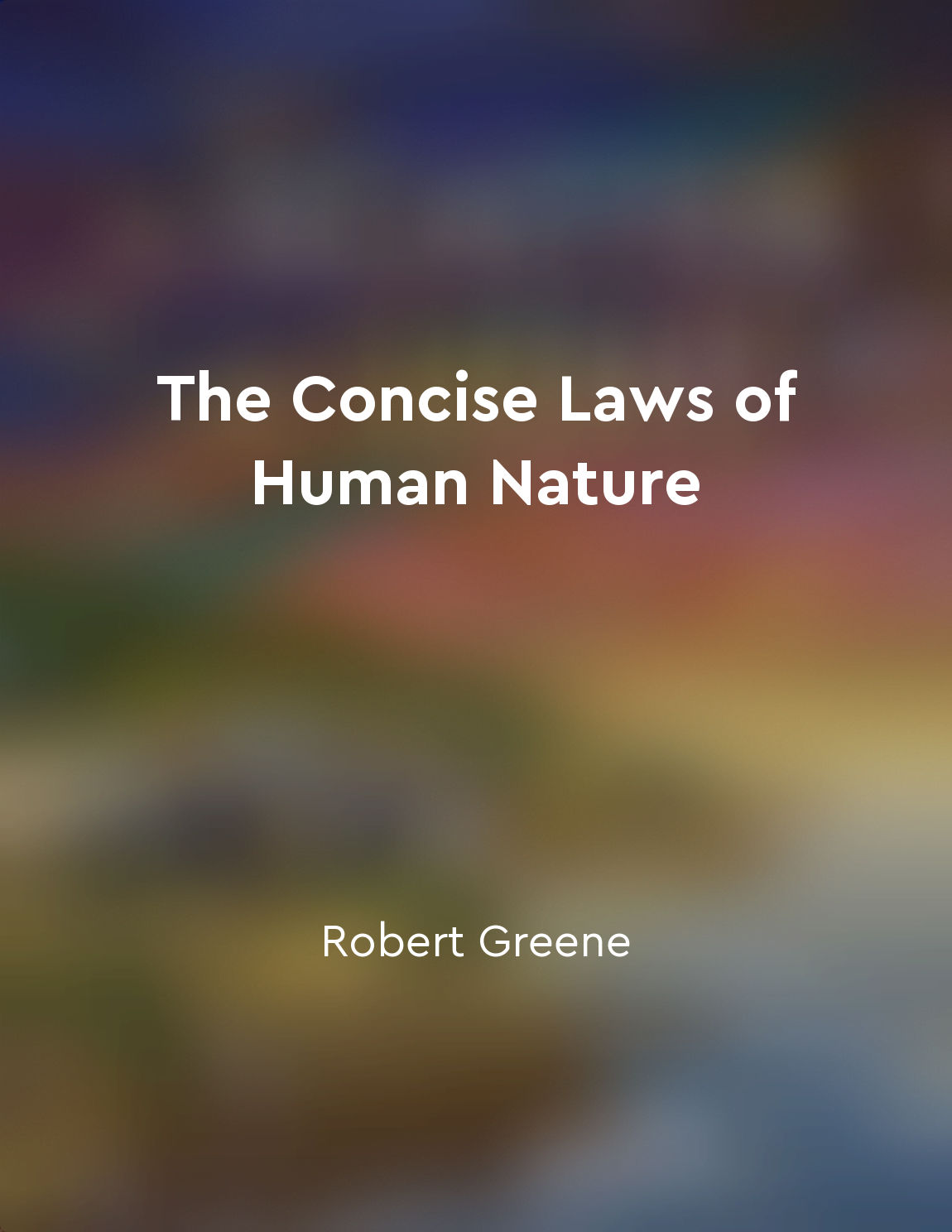Audio available in app
The concept of "social proof" explains how we seek validation from others from "summary" of The Concise Laws of Human Nature by Robert Greene
In observing the behavior of others, we look for clues on how to act in certain situations. This tendency dates back to our ancient ancestors, who survived by learning from the actions of those around them. This instinct remains with us today, manifesting in our desire for social validation. We seek approval from others as a way to confirm our beliefs and actions, hoping that by aligning ourselves with the group, we will increase our chances of success and acceptance. Social proof is a powerful force that influences our decisions, often without us even realizing it. We are more likely to trust the opinions of others, especially if they come from people we admire or consider to be experts in a particular field. We look to the actions of the crowd to guide our own behavior, assuming that if many people are doing something, it must be the right thing to do. This drive for social approval can lead us to conform to societal norms, even if deep down we may have reservations about certain beliefs or behaviors. We fear being ostracized or judged by others, so we conform to fit in and avoid conflict. This tendency to seek validation from others can be exploited by those who understand its power, such as advertisers and politicians, who use social proof to manipulate our behavior and beliefs. To overcome the influence of social proof, we must learn to think critically and independently, questioning the motives behind the opinions and actions of others. We must be willing to stand apart from the crowd and trust our own judgment, even if it means facing disapproval or criticism. By understanding the concept of social proof and its impact on our behavior, we can begin to free ourselves from its hold and make choices that are truly aligned with our values and beliefs.Similar Posts
Group dynamics impact individual behavior
The way people behave is influenced by the groups they find themselves in. This is a fundamental truth about human nature that ...

Reflecting on past decisions can reveal cognitive biases
When we look back on past decisions we have made, we may uncover certain patterns or tendencies that influenced our choices. Th...
Framing messages appropriately is vital
The way in which a message is framed can make all the difference when it comes to persuasion. It is not enough to simply convey...
Scarcity can drive demand and increase persuasion
Scarcity can act as a powerful motivator in driving demand and increasing the level of persuasion in a particular situation. Wh...
Truth is subversive
The concept that truth is subversive is a powerful idea that challenges the status quo and disrupts the established order. By s...
Establish your expertise and authority in your field
To successfully persuade others, you must demonstrate your mastery and credibility in your chosen field. By establishing yourse...
The power of persuasion is rooted in psychological principles
The power of persuasion is deeply embedded in fundamental psychological principles that govern human behavior. By understanding...

Addressing objections is persuasive
Addressing objections is a key element of persuasion. When trying to persuade someone to see things from our perspective, it is...

